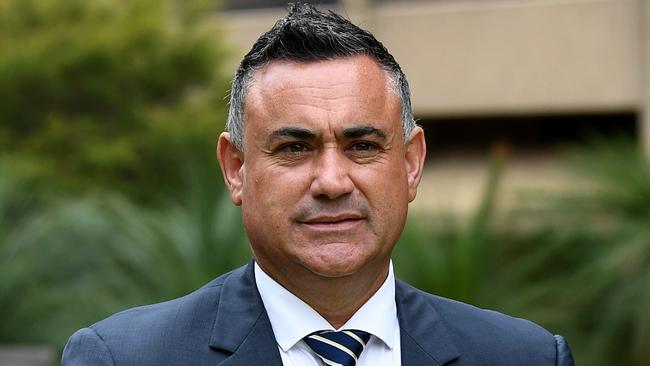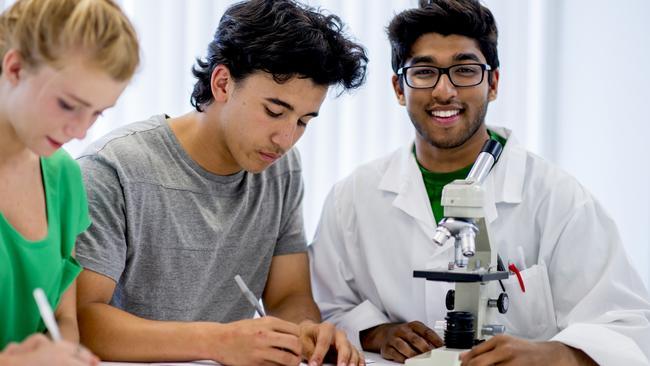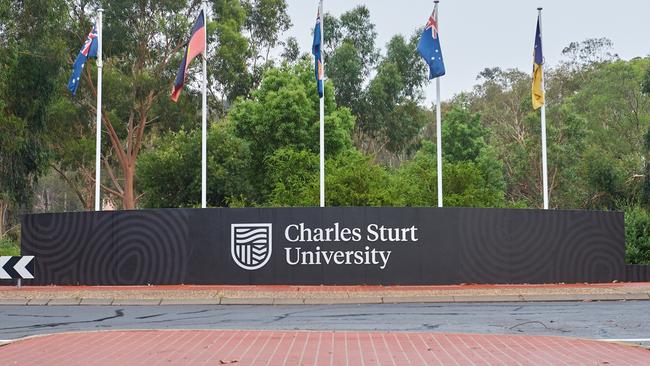NSW regional workforce: Government research paper says students don’t return home
Regional towns including Wagga Wagga and the state’s South Coast are suffering from ‘brain drain’ as students choose to study and stay in the big city after completing university.
Local
Don't miss out on the headlines from Local. Followed categories will be added to My News.
- New aquatic, arts centre plan to transform the bay
- Toilet paper panic buying causing ‘fatberg’ crisis
- Clubs named and shamed over dodgy gambling tactics
NSW Government researchers fear regional towns across the state are suffering from a ‘brain drain’ where students move to capital cities for tertiary education — and never return.
The new government research paper into the future of communities outside the Sydney basin found 83.4 per cent of regional students that moved to the city for tertiary education in 2011 didn’t return to the rural communities they grew up in once they completed, with just 14.3 per cent returning to regional towns.

Chris Angus, from the NSW Government research team, said there was a major contrast in students who attended regional NSW universities, with 62.8 per cent remaining in region towns.
“The majority of regional high school students who undertook city-based study remained in cities following graduation,” he said.
“There are a range of existing — and growing — differences not only between Greater Sydney and Regional NSW, but within the many regional areas of the state.
“Compared to Greater Sydney, Regional NSW is experiencing a slowing of population growth, weak economic performance, lower incomes and higher overall levels of poverty.”
Mr Angus said policymakers must recognise city-centric, one-size-fits-all approaches to economic and community growth “do not work effectively in the regions”.

Deputy Premier and Regional NSW Minister, John Barilaro said the government as doing everything it could to support “the backbone of NSW”.
“To ensure students in regional NSW towns have greater opportunity for tertiary education, we have invested around $16 million to help deliver more Country University Centres across the state,” the Monaro state Nationals MP said.
“Country Universities Centres reduce the need for students to leave regional NSW towns for university and give students an experience comparable to a university campus, so they can connect with other students, meet, socialise and support one another during their studies.”
The regional snapshot also identified the effectiveness of functional economic regions across rural NSW.

“Functional economic regions vary substantially from one another, ranging from high-density
communities on the outskirts of major centres to remote areas with substantial agricultural and mining activity,” the research paper revealed.
“The Productivity Commission’s 2017 analysis of adaptive capacity found that, of the 21 (functional economic regions) identified for NSW, ten had below average levels of resilience.”
Regions including the state’s Far West and Lower Murray were the least resilient across NSW.

Wagga Business Chamber president Danielle Wait said her community saw the impact of ‘brain drain’ in every industry.
“All levels of government, the business chamber and other similar groups are working hard to promote Wagga as a place for tertiary education,” Ms Wait said.
“We have a wide variety of tertiary education opportunities so ‘brain drain’ doesn’t need to happen.
“We see a small return of cohorts that return home later on in life and contribute to a different skill set.”

Ms Wait said she disagreed with the government’s findings on the adaptive capacity of the region.
“Our businesses are innovative and are always adapting to change,” she said. “This is evident right now with the coronavirus pandemic, drought and bushfire recovery.
“The educational institutions and other businesses are fast moving to completely online models.
“This is all happening within a few days in really challenging circumstances — we are always dealing with the hard cards being dealt to us so we are always resilient.”

